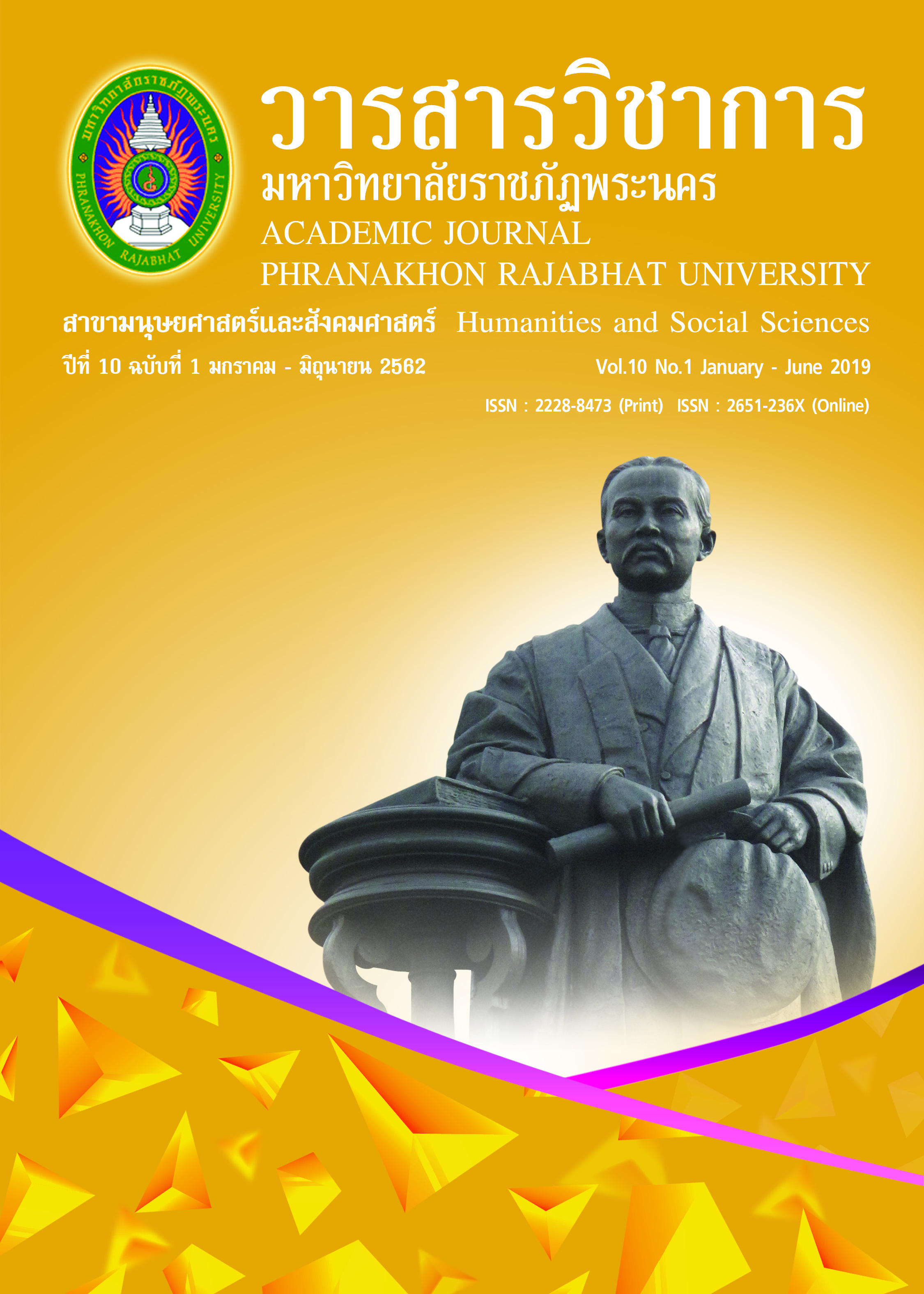A MODEL FOR ENHANCING THE QUALITY OF CITIZENSHIP IN THE 21ST CENTURY CITIZENSHIP FOR CHILDREN AND YOUTH ALONG THE LADPRAO WATERSIDE’S COMMUNITY
Keywords:
Participatory Action Research-PAR, The quality of citizenship, Skill of 21st centuryAbstract
Enhancing 21st century citizenship’s quality for Children and Youth along the Ladprao Waterside’s Community aimed to synthesize the model of enhancing the 21st century citizenship quality and the best practice of the college of teacher education in order to develop knowledge and learning innovation into the local communities and societies. This study was conducted by participation action research by generating the lesson learned through area-based working for studying the cause and problem’s community. Research management unit (RMU), participatory action research unit (PARU), students, and community collaboratively worked starting from analysis, plan, and solve the community’s problems.
The findings revealed that 1) Through the area-based lesson learned, the model for enhancing 21st century citizenship quality consists of four steps; a) Planning the management of University engagement, b) Action by field working with community and students through Participatory Action Research (PAR), c) Observing and monitoring, and d) Reflection all steps throughout the area-based working. 2) The best practice model of the College of Teacher Education for developing according to the University’s criteria, service and engagement were collaboration and partnership which emphasize on the stakeholders’ advantages such as building of integrative services with university engagement in instruction, especially, the seven specified subject activities; STEM, Science, Thai Language, Foreign Language, Sport Music and Dance, Early Childhood and Elementary, and Religious, Social and Cultural Studies. This studies also suggested that other faculties of education should further continue and utilize this best practice to their community.
References
Boontanuttanapong, A., (2006). Not easy to Particiaptory Action Research. Research Journal Phranakhon Rajabhat. 1(1), 19-26.
Donnaya Suvetwethin, D (2018). Colorful house, Prachatipat, Ladprao. Thai Health Promotion Foundation. Retrieved June 7, 2018, https://www.thaihealth.or.th
Inprasitha, M. (2018). The turning point of Thai Education: The answer is a classroom. Retrieved June 7, 2018, from https://www.tkpark.or.th/tha/articles_detail/342.
Kindon, S., Pain, R. & Kesby, M. (2007). “Participatory Action Research: origins, approaches and methods.” In Kindon, S., Pain, R. & Kesby, M. (eds.). Particiaptory Action Research Approaches and Methods: Conecting people, participation and place. Routledge, 9-18
Korkaewthongdee, N. & Kathikul, P. (2001). The manual of anti-corruption for people: People project and community relationship. Bangkok: Srimueang Printing. (in Thai)
Plangklang, P., (2017). Develop 10th grade students’ 21st century skills and concept of solutions by project-based learning using information and communication technology. Journal of Research Unit on Science, Technology and Environment for Learning Environ. Learning, JSTEL. 8(1).
Patanaponasa, N., (2004). Participation, Fundamental Principle, and Case Study. Bangkok: Chulalongkorn University Press. (in Thai)
Phalasuek, R., Thanomchayathawatch, B. & Songloed, D. (2018). Participatory Action Research: Development of a Participatory Process for Health Promotion in the Community. 5 (1), 211-223. (in Thai)
Phra Dhamapidok (1999). The case study of Dhammakaya. 4th edition. Bangkok: Sahathammic. (in Thai)
Pitiporntapin, S., (2015). Development of Grade 10th Students’ Argumentation Skills in Natural Resources Unit Using Socioscienctifc Issues - Based Teaching. KKU Institutional Research Journal. 3(2).
Siridhrungsri, P. (2017). Management model of organization management in community management. Suthiparithat. 31(1).
Stringer, T.E., (1999). Action Research. 2nd Edition CA: Sage Publication. The Southern College Network Journal of Nursing and Public Health. (in Thai)
Sunyawiwat, S. (1997). Sociology Theory. Bangkok: Chulalongkorn University Press. (in Thai)
The Thai Association of University Women. (2018). Thai citizens and culture. Retrieved June 7, 2018, https://sites.google.com/site/tauw2491
Downloads
Published
How to Cite
Issue
Section
License
"บทความวิชาการในวารสารฉบับนี้ ถือเป็นความรับผิดชอบของผู้เขียนเท่านั้น"
สงวนลิขสิทธิ์ตามพระราชบัญญัติลิขสิทธิ์




